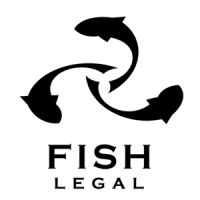The Upper Tribunal has announced a January date for Fish Legal’s appeal for the water and sewage industry to be subject to public scrutiny.
In 2009 the angler’s pollution-busting organisation Fish Legal asked for records from United Utilities and Yorkshire Water on sewage overflows which spew into our rivers, lakes, streams and shores when it rains. Although most of the information was subsequently released, the companies resisted and said they weren’t covered by the Environmental Information Regulations 2004 – leaving scrutiny of the sewage industry to the whim of the companies themselves. The Information Commissioner agreed with the water companies.
After over a year of concerted attempts by the water companies to prevent Fish Legal’s case reaching the Upper Tribunal – which hears appeals against decisions by the Information Commissioner – Fish Legal and Emily Shirley v ICO and United Utilities, Yorkshire Water and Southern Water will be heard in London on 10 and 11 January 2012.
The hearing will decide whether the water companies are “public authorities” (and therefore subject to the Environmental Information Regulations 2004) or if the case should be referred to the European Court of Justice.
Right now, if an angler or any other member of the public wants to know how much sewage is being pumped into a local river and the effects which this might have on the environment, the water companies have only limited obligations to provide information.
In an age of “light-touch” regulation and self-monitoring by water companies, it’s unlikely that the Environment Agency would have the full details. The public therefore must rely on getting the information directly from the water companies.
In November 2010, the Upper Tribunal decided in a case called Smartsource v Information Commissioner that water and sewerage companies in England and Wales were not subject to the Regulations.
 Fish Legal, the legal arm of the Angling Trust, drew that decision and its implications to the attention of the European Commission. The Commission responded by saying that “we would be very concerned if a decision was taken with regard to England and Wales to exclude all information held by water companies from public access”.
Fish Legal, the legal arm of the Angling Trust, drew that decision and its implications to the attention of the European Commission. The Commission responded by saying that “we would be very concerned if a decision was taken with regard to England and Wales to exclude all information held by water companies from public access”.
Fish Legal has also complained to the Aarhus Convention Compliance Committee in Geneva – which is the original source of the law on access to environmental information, signed up to by the UK and the European Union.
Commenting on the present situation of members of the public, environmental groups and those who care about what goes into our rivers and seas, Justin Neal, Head Solicitor for Fish Legal said:
“At present, we are left in a position where we have to rely on the good will of the water companies to tell us when, where and how often they are polluting our freshwater and marine environment. The water companies are hardly falling over themselves to put this information in the public domain. Voluntary disclosure just doesn’t work and, especially in the era of ‘operator self-monitoring’, the Smartsource decision makes it very difficult for us to scrutinise the water companies’ activities and to hold them to account when they pollute our waterways. Unfortunately, we have to fight to make sure that environmental information is made available.”
He added:
“Had the water companies simply accepted that they were subject to the regulations, their confidential and commercially sensitive information could be adequately protected by the exemptions available. It is not a satisfying state of affairs and we believe it’s at odds with the Aarhus Convention and the European Directive on Public Access to Environmental Information.”
Mark Lloyd, Chief Executive of the Angling Trust and Fish Legal said:
“Tens of millions of people rely on high standards of water quality for water sports and angling. Water companies’ activities affect nearly every river and beach in Britain and every family in this country relies on these companies to provide them with safe drinking water. Surely we should have the right to know what they are putting into – and how much water they are taking out of – our rivers and bathing waters.”










